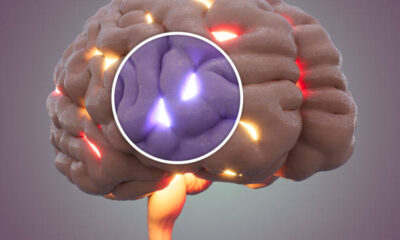Fact-Check
What Are Chakras? Are They Real?

Chakras are an integral part of many spiritual and holistic practices, particularly in Eastern philosophies and traditional medicine systems such as yoga and Ayurveda. The concept of chakras originates from ancient Indian texts, particularly the Vedas and Upanishads, and has permeated various spiritual and wellness practices worldwide. The idea of chakras centers around the belief in subtle energy centers within the human body that correspond to different aspects of our physical, emotional, and spiritual well-being. However, the question of whether chakras are real is a complex and multifaceted one that is subject to both scientific and spiritual viewpoints.
From a spiritual perspective, chakras are believed to be spinning wheels of energy located along the central axis of the body, from the base of the spine to the crown of the head. Each chakra is associated with specific colors, elements, emotions, and spiritual properties, and is thought to govern different aspects of our being. The seven primary chakras are often depicted as the root, sacral, solar plexus, heart, throat, third eye, and crown chakras. According to this belief system, a balanced and harmonious flow of energy through these chakras is essential for overall well-being, and blockages or imbalances in these energy centers can manifest as physical, emotional, or spiritual ailments.
The scientific perspective on chakras is more skeptical, as the existence of these energy centers cannot be objectively measured or quantified using conventional scientific methods. There is little empirical evidence to support the existence of chakras as discrete, anatomical structures within the body. However, proponents of the chakra system argue that the subtle energies associated with chakras may correspond to neurological, endocrine, and psychological processes that can influence our well-being, albeit in ways that are not yet fully understood or measurable using current scientific tools.
In recent years, there has been growing interest in holistic and integrative approaches to health and wellness, including practices such as acupuncture, yoga, and meditation, which often incorporate the concept of chakras. While the scientific community emphasizes the need for rigorous empirical evidence to substantiate the existence of chakras as discrete energy centers, many individuals and practitioners find value in the symbolic and metaphoric aspects of the chakra system as a framework for understanding and addressing aspects of their physical, emotional, and spiritual health.
Ultimately, the question of whether chakras are real is a deeply personal and subjective matter thatis likely to vary depending on one’s cultural, spiritual, and philosophical beliefs. For those who have experienced benefits from practices that engage with the chakras, such as meditation, energy work, or mindfulness techniques, the reality of chakras may be felt intuitively and subjectively.
From a practical standpoint, whether or not chakras are “real” becomes less pertinent when considering the tangible effects of practices that aim to balance and harmonize these energy centers. Many individuals report feeling greater emotional stability, improved physical health, and a deeper sense of spiritual connection through chakra-based practices, regardless of the scientifically measurable existence of these energy centers.
In summary, the question of whether chakras are real is a complex and nuanced one that aligns with the intersection of scientific, spiritual, and personal perspectives. While the empirical evidence for chakras as discrete energy centers within the body is currently limited, the symbolic and metaphoric aspects of the chakra system hold significance for many individuals in their pursuit of holistic well-being. Ultimately, whether chakras are real may be less important than the subjective experiences and benefits that individuals derive from engaging with the principles and practices associated with these energy centers.
-

 Breaking News2 years ago
Breaking News2 years agoBREAKING: CBN Redesigns Naira Notes
-

 Breaking News12 months ago
Breaking News12 months agoBREAKING: Tinubu Considers Temporary Subsidy On Petrol
-

 News2 years ago
News2 years agoDrama As Church Gives Certificate Of Virginity To Ladies After Testing Them (See Photos)
-

 Crime2 years ago
Crime2 years agoUproar As Student Teacher On Teaching Practice Impregnates 24 Girls, Headmistress, Four Female Teachers
-

 Breaking News4 months ago
Breaking News4 months agoJUST IN: Gbajabiamila Dies In UK
-

 Breaking News10 months ago
Breaking News10 months agoBREAKING: Dangote Speaks As BUA Reduces Price Of Cement
-

 Breaking News11 months ago
Breaking News11 months agoFLASH: Govt Declares Monday As Public Holiday
-

 Crime2 years ago
Crime2 years agoJUST IN: Gunmen Storm Osogbo, Kill Man, Daughter Few Hours After His Wife Put To Bed (Photos)















